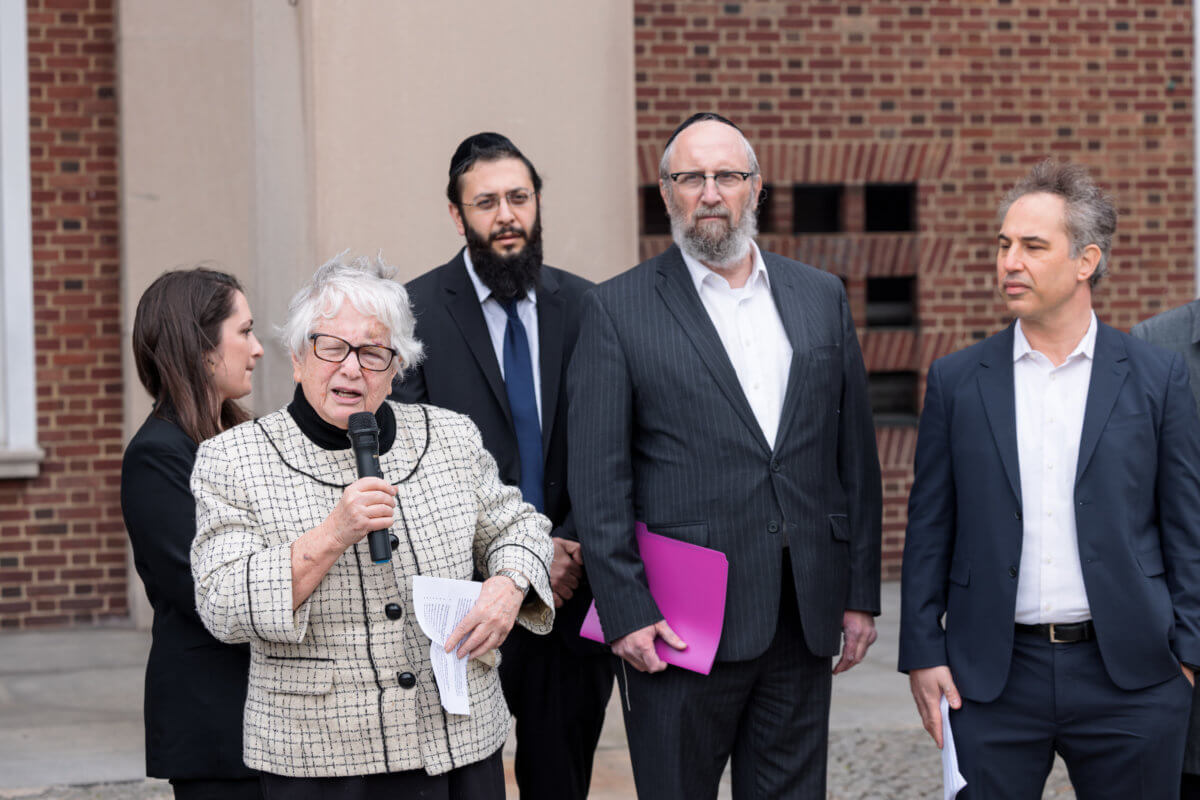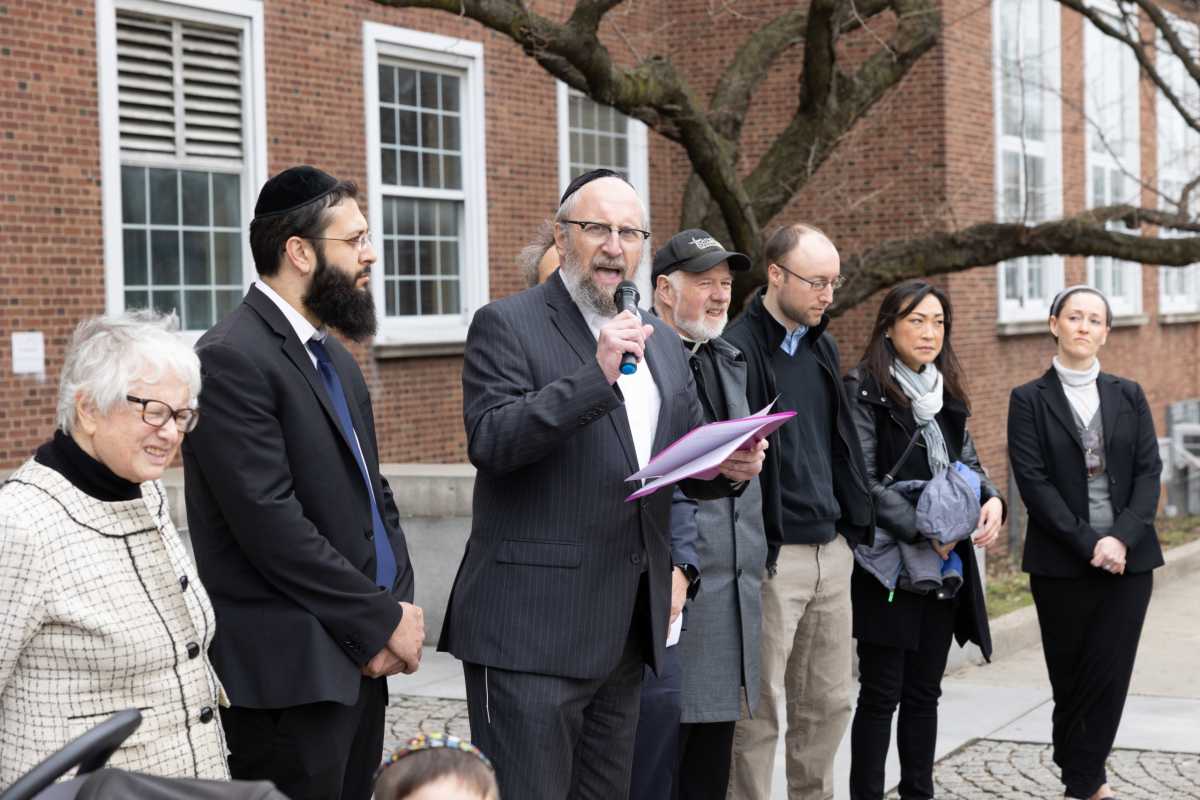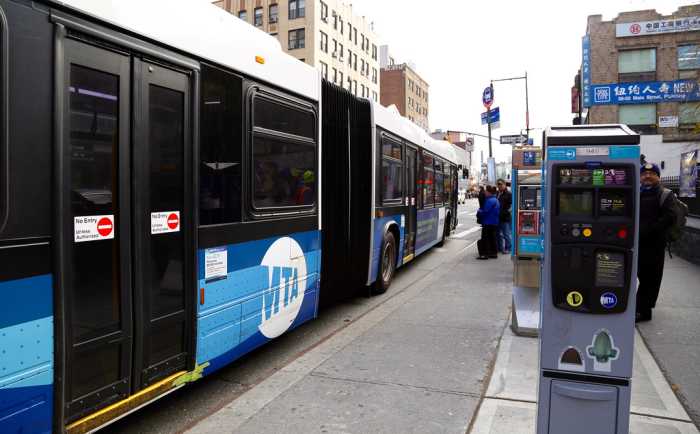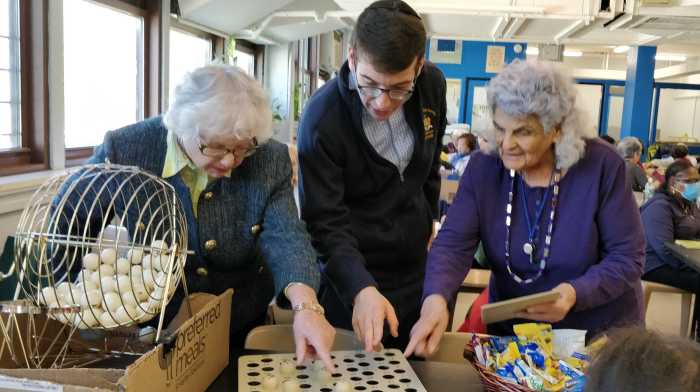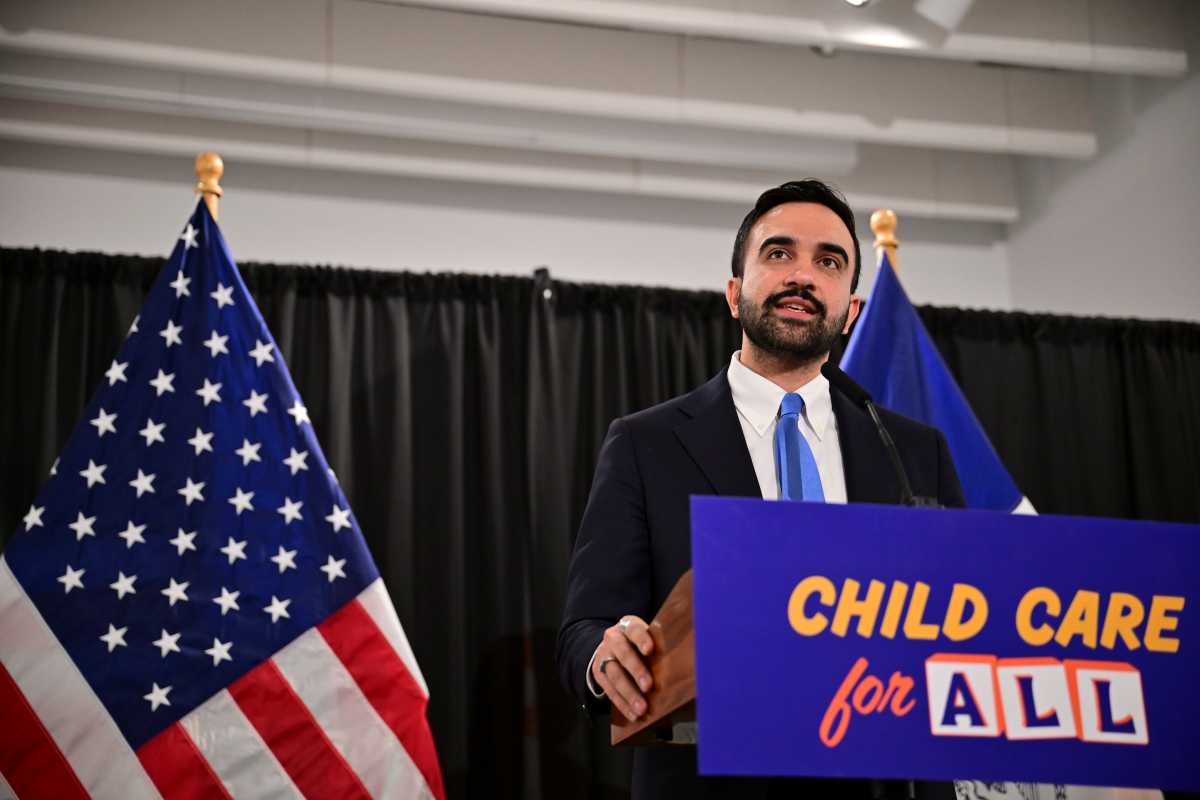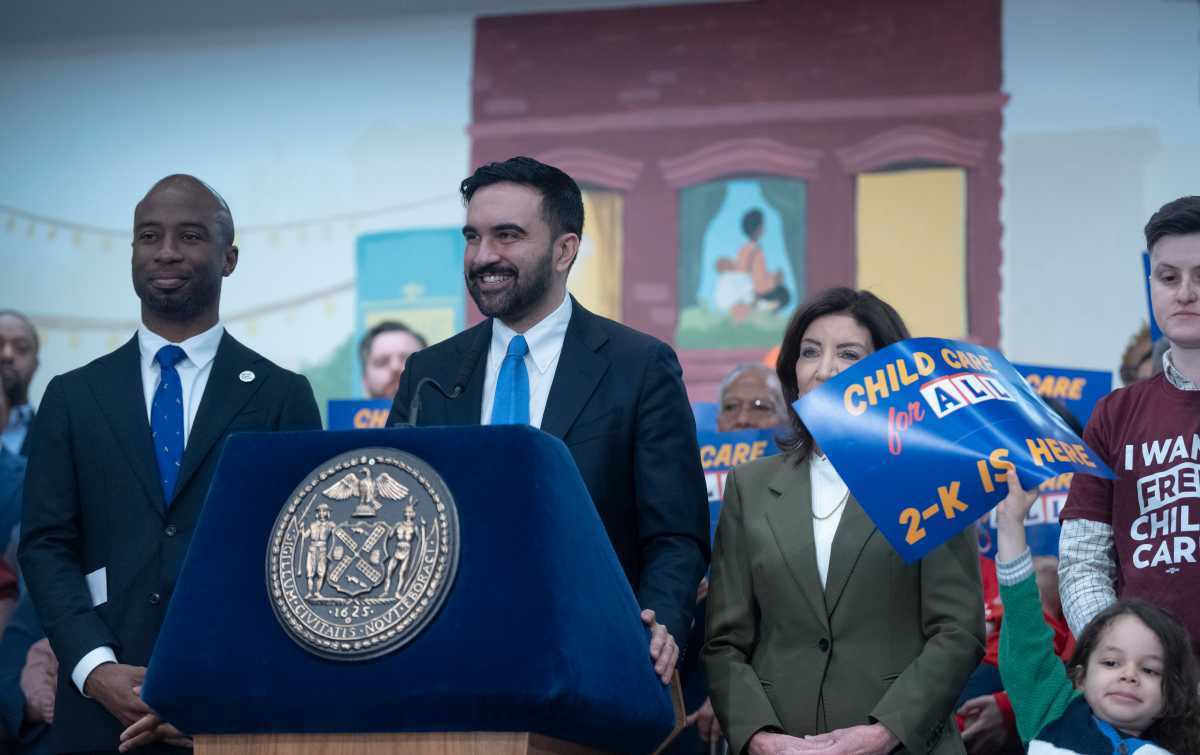Queens elected officials were joined by religious leaders, advocates and impacted families on the steps of Borough Hall in Kew Gardens on Sunday, March 20, calling on New York state to include the expanded Empire State Child Tax Credit in the final enacted budget.
Several supporters attended the event organized by Assemblyman Andrew Hevesi, including Senator Toby Ann Stavisky, Councilwoman Linda Lee, Rabbi Yeruchim Silber of Agudath Israel, Monsignor Kevin Sullivan of Catholic Charities, Rabbi Yaniv Meirov, CEO of CHAZAQ, Kercena Dozier, executive director of Children’s Defense Fund NY, and Matthew Klein, chief program and impact officer of Robin Hood.
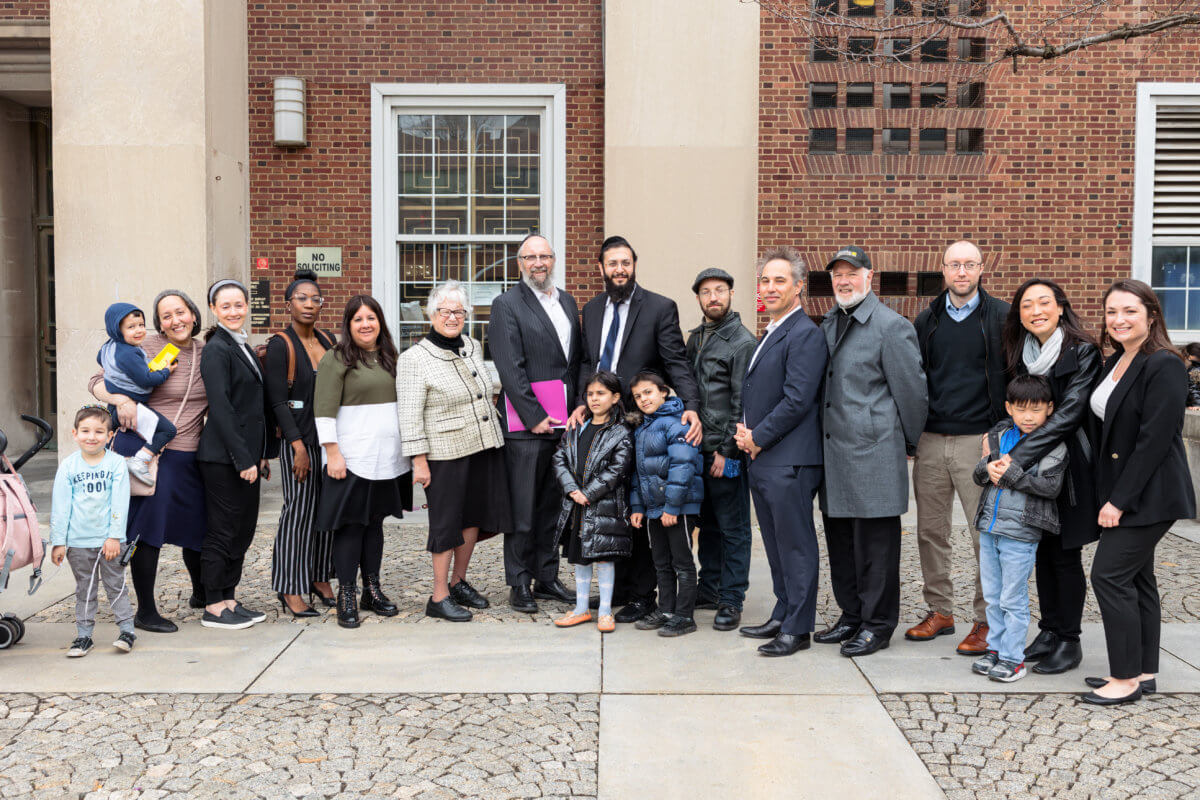
“New York State must seize this opportunity and deliver for our children and families,” said Hevesi, chair of the Children and Families Committee. “Expanding the Empire State Child Tax Credit to include children under 4, while also increasing the amount of the credit, will be a lifeline for New Yorkers, especially for the 681,000 kids at risk of falling back into poverty due to the expiration of the federal credit. I am incredibly grateful to [Assemblywoman] Helene Weinstine, chair of the Ways and Means Committee, for including the expansion in the Assembly one-house budget.”
In January, the one-year expansion of the federal child tax credit expired. The expansion reduced child poverty by increasing the amount per child for all children, with an additional credit for children under age 6, and making the lowest income children eligible for the maximum credit. Now, in absence of that expansion, 681,000 kids are at risk of falling back into poverty.
New York State’s Empire State Child Credit is limited in its ability to fill in the gaps and to help address poverty. It provides families with up to $330 per child, per year. It excludes children under age 4 and does not reach all children in families with low incomes. Black and Latino children are disproportionately ineligible for the full credit.
The coalition called for NYS’s final enacted budget to include the following:
- Expansion of the credit to include children aged 0 to 3 years old
- Raising the value of the credit for families with incomes up to $100,000
- 100% increase for families under $10,000
- 75% increase for families between $10,000 and $25,000
- 50% increase for families between $25,000 and $50,000
- 25% percent increase for families between $50,000 and $100,000
According to the coalition, expanding this credit is a lifeline for New Yorkers, especially as families continue to recover from the devastation of the pandemic.
Yocheved Kandler, a mother of two children aged 1 and 5, said the federal tax credit was helpful to her and other families.
“New York state has the empire tax credit, which has been helpful but it’s very limited,” she said. “My daughter, who is about to be 1, is not included in the tax credit and it’s a little hard for us to understand why she isn’t eligible.”

Another parent, Shira May, a mother of three children, said it’s time for New York state to step up and help families that are falling back into poverty.
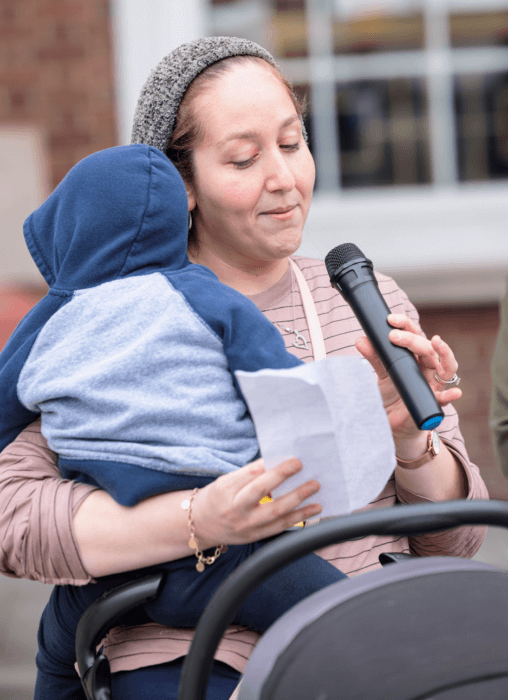
Research showed that families spent the federal credit on food and other basic needs. In New York, 48% of families spent their federal child tax credit on food, 38% spent their credit on bills and 34% spent their credit on clothing and other essential items for their children.
Currently, 743,000 New York children live in poverty, with an additional 795,000 children residing in low-income households living between 100% and 200% of the poverty level. Notably, the younger the child, the more likely the child is to experience poverty.
Prior to the start of the pandemic, Benjamin Anderson, director of Economic Mobility and Health Policy with the Children’s Defense Fund NY, said one in five children lived in poverty.
“Our Black and Latinx children are more than twice as likely to live in poverty than their white peers, both statewide and in Queens,” Anderson said. “In a state and a nation as affluent as ours, this represents not only an economic crisis but also a moral failure.”
According to Anderson, the current Empire State Child Credit disproportionately excludes the state’s children of color because they’re either too poor or too young to receive the credit’s full value.
“In fact, Black children are 1.5 times more likely than white children to receive partial or no credit because of low family earnings exclusions in the current ESCC. New York has the opportunity to right these wrongs in the state budget and begin to fulfill the promise of the Child Poverty Reduction Act by increasing the value of the ESCC, making it available to children under 4, including the option for families to receive advance ESCC payments and eliminating the ESCC’s earnings requirement and phase-in to make the credit fully accessible to our state’s lowest-income families,” Anderson said.
Yeruchim said it makes no sense that parents of children under the age of 4 cannot claim the tax credit.
“This is the time when many new parents, especially those living in poverty, are entering the workforce and we should be encouraging them, not placing barriers in their way. We thank Assemblyman Hevesi for championing this issue and to his colleagues in the Assembly Majority for including it in their one-house budget. We call on the governor and the Senate to include it in the final budget,” Yeruchim said.
New York City Council Speaker Adrienne Adams said the Empire State Child Tax Credit has been a critical resource for families who are in need of a stronger social safety net.
“Investing in this child tax credit will yield significant long-term benefits, particularly for many Black and Latino families who are not currently eligible to receive the full support. I join the call in support of enacting a state budget that expands this credit for New York families who need it most,” Adams said.
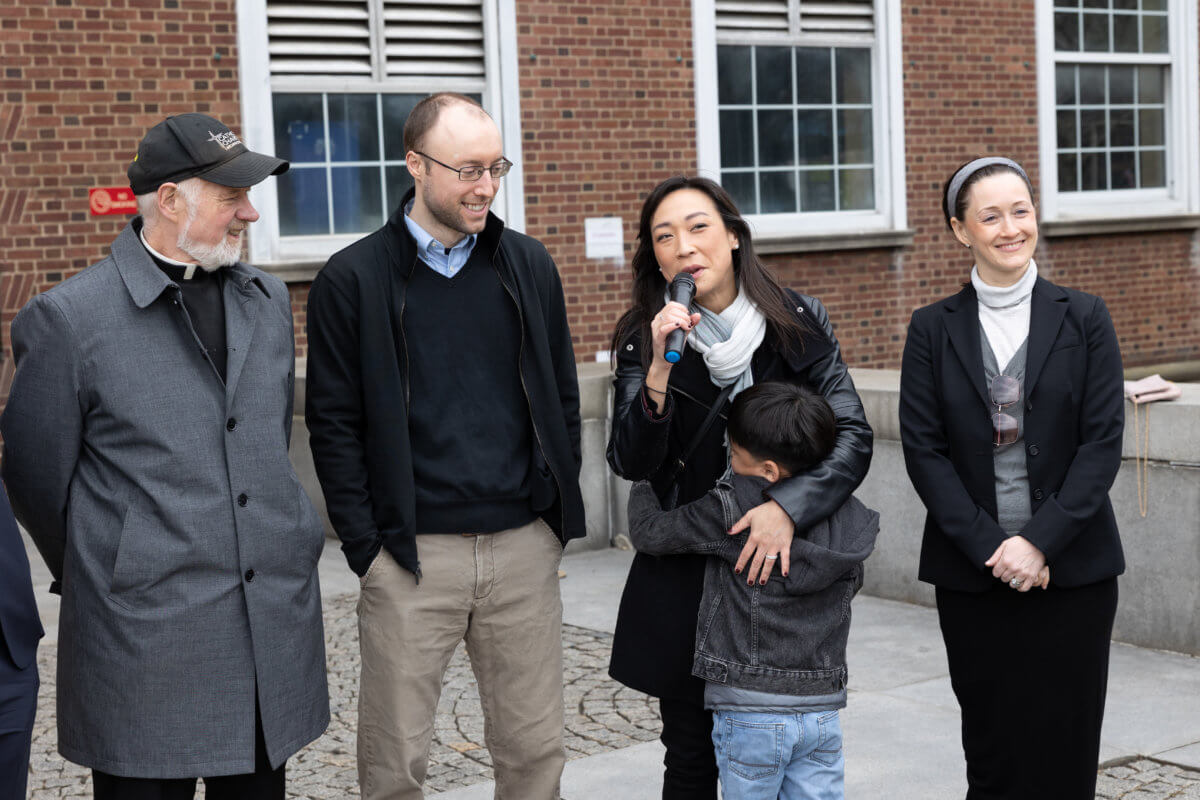
Lee said that childcare is a necessity, not a luxury, that not only impacts parents and children but everyone else as well.
“Lack of childcare prevents parents from reentering the workforce, and by excluding children 3 years old and under and those with low incomes, we make it harder for these families to get back on their feet after having a child,” said Lee, who was joined by her two sons, aged 3 and 7.
As the federal child tax credit helped lift thousands of children and their families out of poverty during the pandemic, Stavisky said New York must step in and fill in the gaps by expanding the state’s child tax credit.
“No child should feel the pain of poverty,” Stavisky said.
